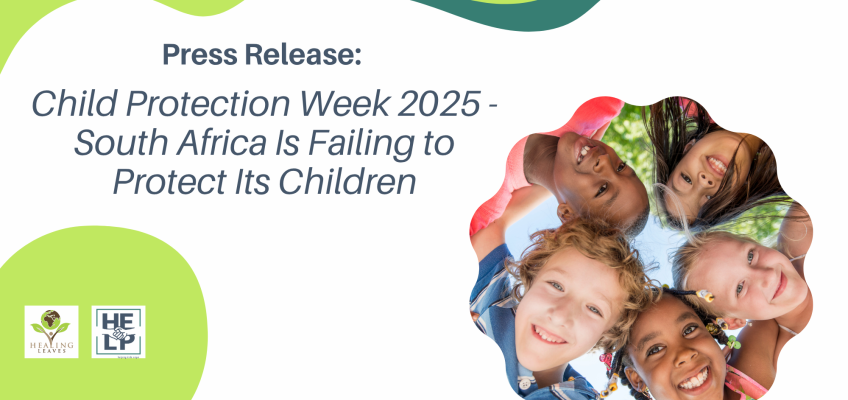South Africa observes National Child Protection Week from 29 May to 5 June, and this year the theme selected is “Working together in ending violence against children.”
In considering this theme, South Africans are faced with an urgent question:
“Are we really doing enough to protect our children from crime and violence?”
When we look critically and honestly at the lived reality of many South African children, the short answer is: No.
A Constitutional and Legal Duty
South Africa’s commitment to child protection is enshrined in its Constitution, which guarantees that:
“Every child has the right… to be protected from maltreatment, neglect, abuse or degradation” (Section 28(1)(d)
The Children’s Act 38 of 2005 goes further, requiring the state to take coordinated action to promote the well-being of children, including protection from all forms of physical or emotional harm and exploitation. Yet despite this legislative backbone, many South African children face a bleak reality.
The Alarming Crime Stats Against Children
The latest data for the period January to March 2025 released by the South African Police Service paints a distressing picture of the safety of children in our country.
While the SAPS report does not disaggregate every crime by age, it does include direct evidence of crimes against minors in specific contexts, especially in schools, educational settings, and domestic environments.
- 80 cases of rape were recorded at educational institutions, including nursery schools, primary schools, and high schools. Of these, 54 victims were learners, often assaulted by acquaintances, teachers, or even fellow students.
- 6 children were murdered at schools during this period.
- 13,452 sexual offences were recorded nationally. While the SAPS does not provide an exact child-specific breakdown, data shows that a significant share of these crimes affect children, particularly girls under 18.
- 1,872 sexual assault cases and 10,688 rapes were reported in total, again, many involving minors and often taking place in places where children are supposed to be safe, like their homes and schools.
Shame, fear, and social stigma continue to silence victims of sexual and violent crimes, leaving countless cases hidden from the public eye and unaccounted for in official data, meaning the true rates may be much higher.
These figures highlight an indisputable fact: South Africa is not sufficiently protecting its children from physical and sexual violence. The country’s schools, homes, and public spaces continue to serve as crime scenes for some of the most heinous acts against the most vulnerable members of society.
How We Can Fix This
Instead of using commemorative events like Child Protection Week to discuss the challenges facing South African children, we should treat them as calls to action for taking practical steps towards ensuring our children’s safety. These include:
- Strengthen Reporting Systems
Children and families must feel safe reporting crimes. This requires police reform, more trauma-informed officers, and community-based victim support.
- Invest in Prevention
Community education campaigns, school-based violence prevention, and parenting support programs must be scaled up. Every school and clinic should be a safe space.
This is why HealingLeaves developed the H.E.L.P – Helping Kids Cope training, as a tool to educate teachers, police officers, social workers, community workers and parents about childhood trauma. The course teaches participants to recognise trauma, how trauma affects childhood development, and practical steps they can take to support and help traumatised children.
- Enforce the Law
Existing legislation, such as the Children’s Act, provides the framework. What’s lacking is enforcement and accountability. South Africa should develop a zero-tolerance attitude to any crimes perpetrated against children.
While talking about protecting children from harm is an important first step, our children need more than just words. South Africa must live up to its promises, enforce its laws, and ensure that no child is left to suffer in silence.
For media enquiries, contact:
Marthé Kotze-de Beer
MPhil Multidisciplinary Human Rights UP
Director – HealingLeaves
073 391 4774

